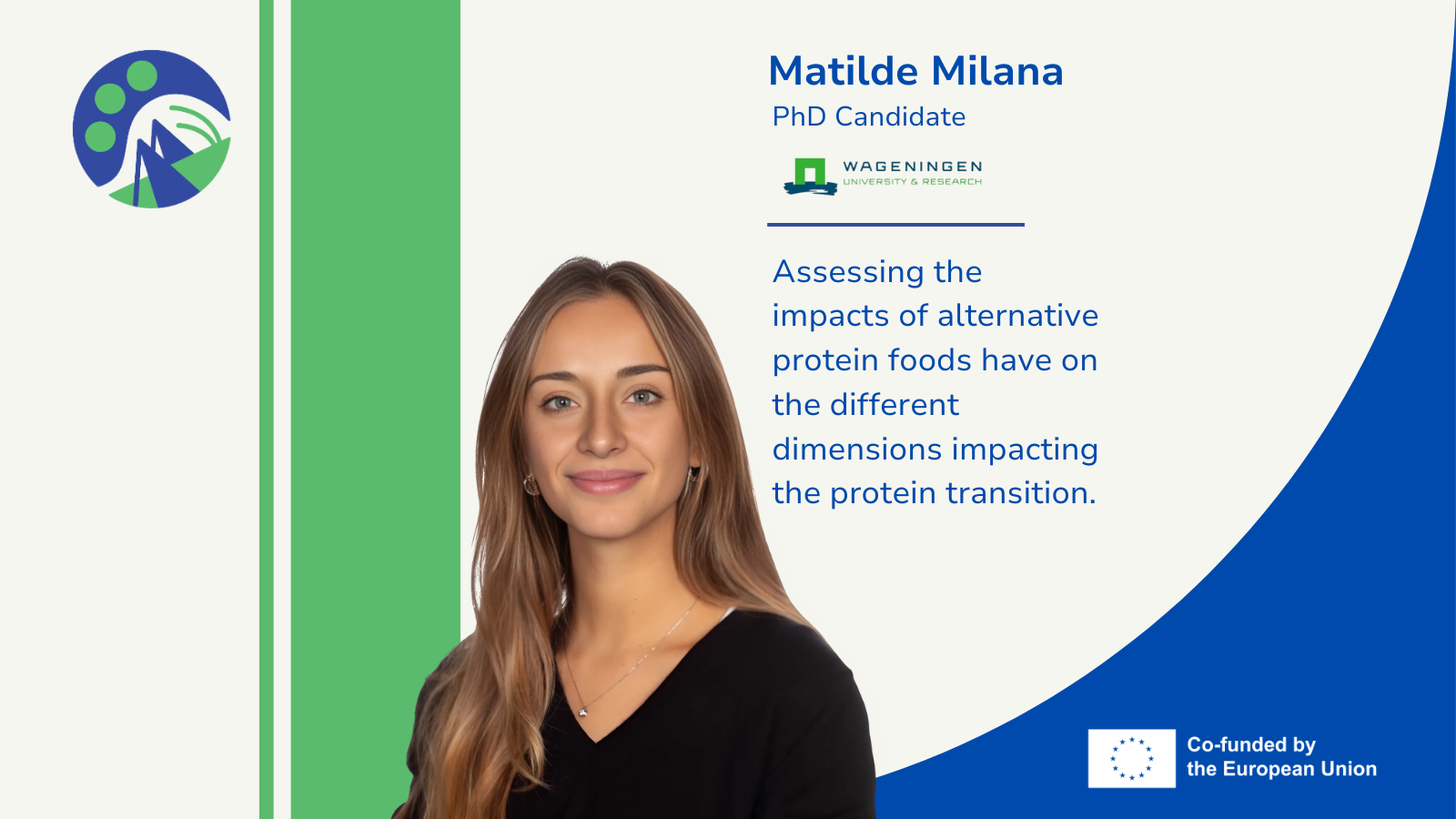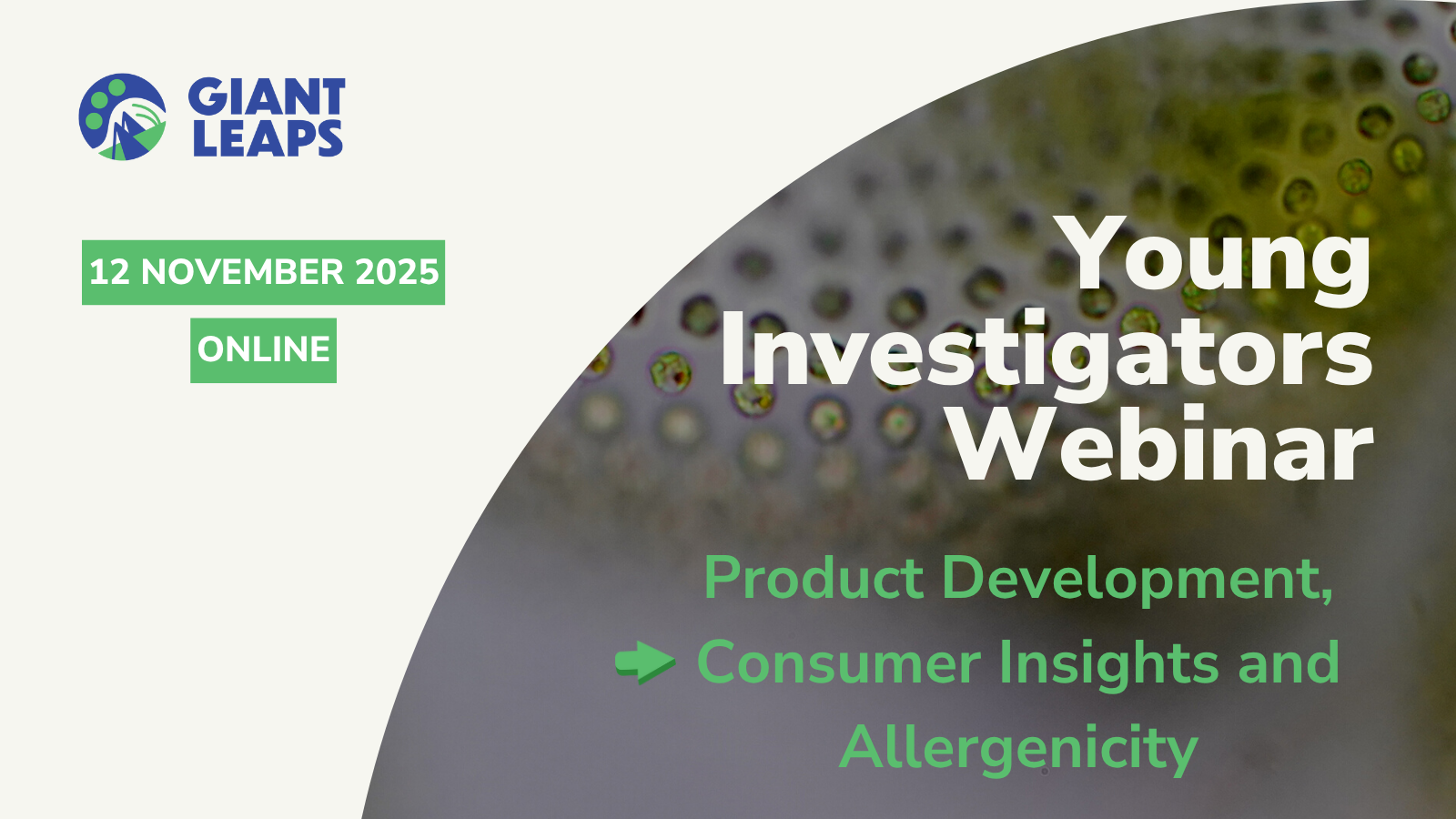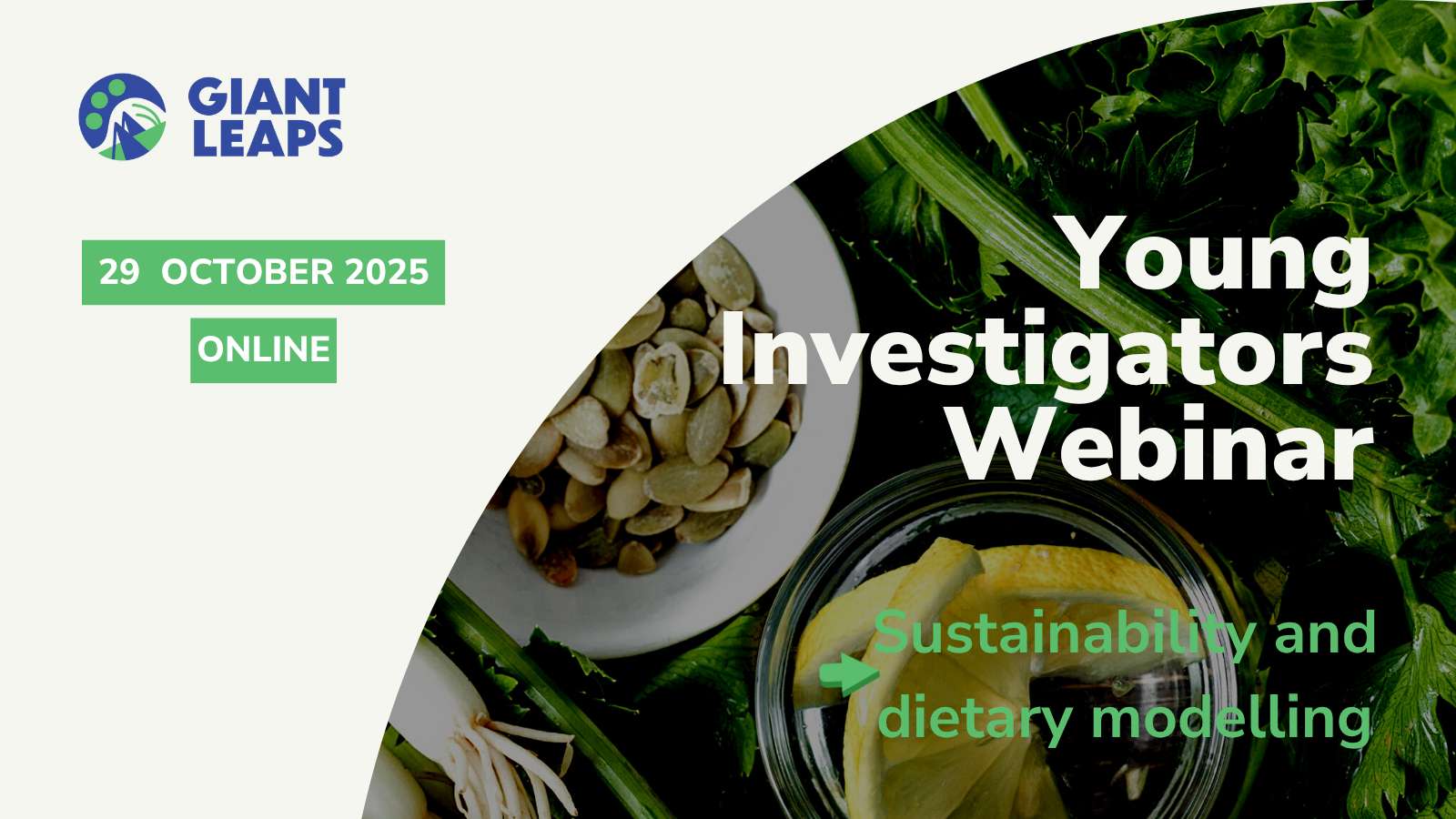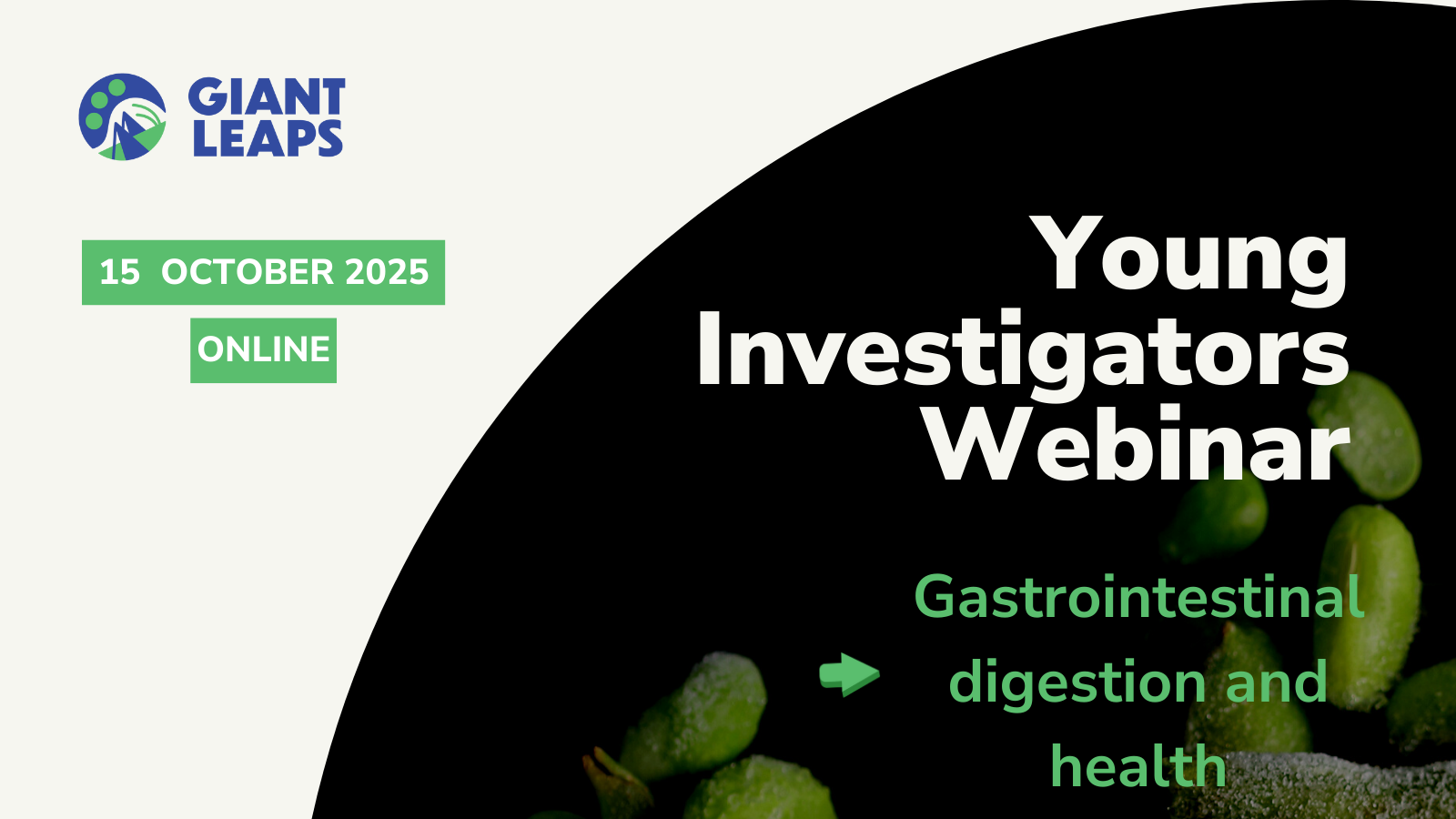Meet our Young Investigators: Matilde Milana, Wageningen University

Matilde Milana is a 3rd year PhD candidate at Wageningen University. Her scientific background is in human nutrition and food safety, and she started her PhD after finishing my academic education. Matilde is part of Work Package 7 of GIANT LEAPS, which aims to optimize the dietary transition toward more sustainable diets.
What is the focus of your research?
The main focus of my research is to assess the impacts alternative protein foods have on the different dimensions
impacting the protein transition. These dimensions include health as well as social and environmental aspects. Research
of this kind requires a large amount of good-quality data on the various dimensions and protein sources. Early in my
PhD, I worked on a systematic review of the literature to collect data on chemical and microbiological safety and on the
toxicological and allergenic potential of alternative protein sources. At present, I am working on estimating the impact
of alternative protein foods on different dimensions, later ranking them, and using multi-criteria decision-making
methodologies.
What I find most exciting about my research is the holistic approach to real-world problems. In fact, it aims to benchmark problems from different dimensions- and scientific disciplines- into a single solution, as is the case in the real world.
Where are you based? What do you enjoy about your university? Does it foster your interest in alternative proteins? Is there a local community that inspires your work?
I work at the Wageningen Food Safety Research Institute in the Netherlands. I am extremely grateful to work in such an inspiring environment, where sustainability in all its forms is at the heart of all 'research activity. Also, Wageningen has an extremely active scientific community, which makes it easy to find experts and colleagues with whom to exchange ideas.
What sparked your personal interest in the topic of dietary shifts?
My interest in alternative protein sources grew toward the end of my academic education when I had the opportunity to participate in a research project on the topic. I quickly realized it was an area I wanted to explore further and, especially, to which I had a strong desire to contribute my own research.
What are your aspirations for the future, and how do you hope your work will make an impact?
I hope that the results of Giant Leaps can have a tangible effect, large or small, in helping and bridging the protein transition. For myself, I hope to continue researching this topic and to contribute, in my own small way, to the new challenges that time will bring.
You can learn more about her work here.



